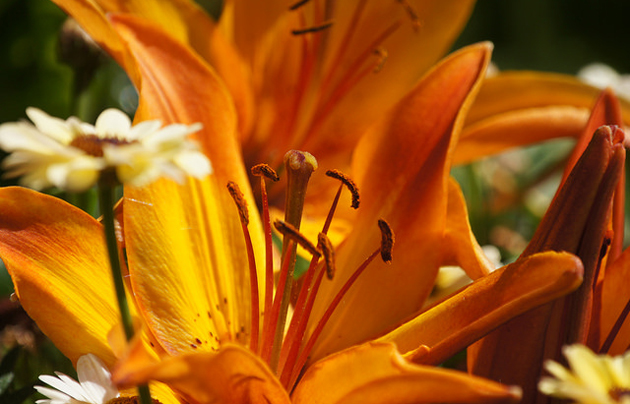We can sow to please our sinful nature or sow to please the Spirit - in both cases we should be aware of what we are sowing for. Our sowing has consequences in the future.
 Photo: Tjflex2
Photo: Tjflex2
The majority of you who are reading this will not be living in the countryside. For in 2008, for the first time in human history, the proportion of people living in urban areas passed the 50% mark.
In 1960 only one-third of the human race lived in towns and cities, but by 2050 that figure is predicted to be two-thirds. This should hardly be surprising to anybody who has studied the Bible, for that book shows us human history beginning in a garden in Genesis and ending in a city in Revelation.
Jesus used many rural images to apply his teaching (the parable of the sower, the lilies growing in the field, etc.). Thus he taught even us city dwellers to look at nature in order to understand how God works; and Paul concurs with this (Romans 1:19-20).
Hosea, 700 years before Jesus, was also speaking to communities dependent on agriculture for their livelihoods. In this chapter he gives God’s message to his hearers by using agricultural images with which they were familiar. And his message remains relevant for us today, whether we live in the countryside or in an urban area.
Hosea tells Israel to break up their unploughed ground by seeking the Lord (verse 12). Have you ever been in a country affected by a drought? The ground becomes so rock hard so that, even when the rain finally arrives, it is unable to absorb it, and the water just runs away. That is why so often, paradoxically, floods follow a period of drought. We’ve probably all had the experience some time of praying to God for blessing and not receiving anything. It is always worth seeking the Lord and asking the question whether the blockage is on our side, whether there is hard, unploughed ground in our life that we need to attend to.
Then he tells them to sow for righteousness (verse 12 - the ‘for’ in Hebrew is missed by some translations). In one of the houses where I lived in the past I had a small vegetable garden. When I sowed, for example, carrot seed, I was sowing for carrots. The seeds didn't look anything like a carrot, but I sowed in the confident expectation that in due course they would produce carrots. The Bible tells us, in Galatians 6:8, that we have a choice: we can sow to please our sinful nature or sow to please the Spirit - in both cases we should be aware of what we are sowing for. Our sowing has consequences in the future.
Yes, the consequence of sowing is reaping. This for me is the most enjoyable part of gardening, picking the vegetables whose seeds I sowed - somehow they seem to taste better when we have grown them ourselves. Hosea tells his listeners that if they sow for righteousness, they will reap for the fruit of unfailing love. Jesus tells us that he he chose us to bear fruit (John 15:16). So it’s good that we examine the fruit of our lives. It may be a time of pruning for us (as in John 15:2), when there is not so much fruit - we must beware of condemning ourselves at such a time. It may be that there is good fruit, or perhaps not so good as well. We can always trace back the fruit to something which we have sown in our lives, perhaps many years before - though we may well need revelation from God to make this connection.
Finally, Hosea rebukes Israel for what they are doing with the fruit which they are receiving (verses 1-5). Sadly, all the benefits which the Lord gave them were being expended on useless things like sacred stones, pagan altars and idols - so all the fruit came to nothing and was ultimately destroyed; and even their very lives were endangered by this (verses 5-8). The opposite spirit is explained in 2 Corinthians 9:10-11: He who supplies seed to the sower and bread for food will also supply and increase your store of seed and will enlarge the harvest of your righteousness. You will be made rich in every way so that you can be generous on every occasion.
What is the fruit in your life? Is it the availability of money or of time? Is it compassion, certain spiritual gifts, a fulfilling career, a good house or flat, the capacity to help others? What you do with the fruit that you have, how you sow the seed from that fruit, will have consequences in the future. Hosea closes his chapter by warning of two attitudes that can destroy our fruit - and us as well: Depending on our own way of life (verse 13), refusing to let God intervene in it; and trusting in other people for our strength (verse 13). It is time to seek the Lord (verse 12), time to start (or continue) sowing for the future (see Ecclesiastes 11:6). It is never too late to start.

Las opiniones vertidas por nuestros colaboradores se realizan a nivel personal, pudiendo coincidir o no con la postura de la dirección de Protestante Digital.
Si quieres comentar o